The content of the article
The birth of kittens is a very important moment for a cat, because at this time the pet is undergoing a tremendous load of both physical and psychological order.
Basic information
The cat rolled, but this does not mean that everything is finished - the owner should see if all the kittens were washed by their mother and if they had time to taste mother’s milk, or to be more precise, colostrum. It is very important that kittens take a sip of colostrum, as the mother’s drink contains many trace elements, vitamins, antibodies and minerals. Colostrum forms immunity in kittens. Newborns will not have their own immune system yet, which means that if the kittens do not get enough milk from their mother’s milk, they will soon become ill.
After the newly-made mother feeds her children, she herself will wish to taste milk. But there is a small problem: beginners think that the cat does not want to eat, as it does not go to the bowl. In fact, instinctively, a cat cannot abandon its offspring, which means it is not able to go eat. The best option would be to place bowls with milk and food close to the offspring.
I would also like to note that many cats do not eat anything after childbirth - they get so tired that they simply can not eat anything. Do not worry, the cat will rest and her appetite will definitely appear, and the animal will eat three times more than its norm, since it needs to feed not only itself, but also its newborn children.
Nutritional features in women in labor and kittens
After 60 - 70 hours after giving birth, an increase in appetite occurs, the pet begins to drink and eat everything that is offered to her. After a week, the appetite returns to normal, and after a month it even decreases, as the kittens begin to consume some food on their own.
The cat went on a hunger strike - what happened to her after giving birth?
A common reason for this is due to minor inflammation in the genital tract and uterus. This happens due to a difficult birth, tears and other wounds appear on the mucous places of the genital organs. The cat is in pain and cannot eat due to stress. The most dangerous thing is if the cat has uterine inflammation or the so-called endometritis. With this inflammation, a fever appears, which significantly affects the condition of the pet. With moderate inflammation, the cat may recover after a few days.
Some cats have a nervous behavior after giving birth, they eat jerkily, as they are constantly worried about their kittens. In this case, the situation cannot be aggravated - it is necessary to temporarily isolate all domestic animals from the cat and its offspring, as well as not invite outsiders to “look at the kittens”. At first, only the person whom the cat trusts can be next to the cat.
When to sound the alarm?
If the animal had not only lost appetite after childbirth, but also strange symptoms were noted - it should be consulted with a veterinarian.
- Bleeding. Scientifically, hemorrhages are called bleeding. If a cat gives off a crimson color after giving birth, then this is an absolutely normal, physiological phenomenon.By the way, for this reason, the cat needs to lay that linen, which is not a pity to slap in the blood. Allocations of red-brown color are the norm, if there is no smell of rot. Otherwise, a visit to the veterinarian is indispensable. There are cases when claret or bright red blood clots stand out from the genitals of an animal - this is very bad, as these signs indicate intrauterine bleeding. Even a small intrauterine bleeding leads to anemia and other unpleasant aspects, for example, a cat begins to eat little or completely refuses to eat. The condition of the pet during anemia will only worsen, so the sooner you get to the veterinarian, the higher the chances that your cat will be fine.
- Birth complications. Small kittens are surrounded by the so-called afterbirth or baby place in the womb. This afterbirth should depart after childbirth or during. The cat gave birth, and the last literally in an hour should depart. But, if this did not happen, then this is a bad sign, since a delay in the afterbirth in kitties is a risk of getting inflammation. The last remaining in the uterus receives a dose of bacteria during childbirth and begins to rot. Naturally, the cat begins to smell very bad, sometimes the smell is on the whole house. The pathology is easy to determine not only by smell, but also by the presence of green-yellow or purple-gray flowers on the genitals of a cat.
- With severe intoxication, the pet's playfulness disappears, it becomes very lethargic and passive. Alas, similar symptoms can be associated with an uterine rupture in an animal. This happens with very complex births in conjunction with inept obstetric care. In this situation, the "usual" endometritis cannot get rid of, these gaps lead to peritonitis. A cat in this state feels terrible, it ceases to care for itself and its offspring. Her milk suffers with such an ailment, it becomes toxic.
- Breast problems in a cat. Inflammation of the mammary glands or mastitis often occurs through the fault of adult kittens, who, instead of drinking milk from a bowl, continue to lactate milk from their mother’s breasts. Their sharp teeth leave tiny wounds on the nipples of the cat, and as a result, the mammary glands become infected, they swell. In addition, mastitis occurs with endometritis, since pathogenic microflora can easily enter the mammary glands of the animal. Mastitis can also develop in mothers with a lot of milk.
- Hypocalcemia. This is a serious pathology that occurs after childbirth, when a cat has a tiny amount of calcium in the blood. This happens because of the connivance of the owners who fed the cat poor-quality food or gave food with a minimum amount of nutrients. It is also possible that the cat was born weak or has a poor appetite since childhood, as a rule, such a disease is inherent in thin cats. Symptoms of hypocalcemia are trembling, poor walking, nervousness, rapid breathing. What to apply? In this situation, the assistance of a veterinarian will be required.
- Lipisode as a result of cat fasting. If your pet is too thin and does not take food during the day, then liver lipisode can expect it. If the cat did not eat well before childbirth or after them the appetite did not appear, then be sure to consult a veterinarian!
The most important thing is to help your pet in time, we do not recommend starting self-medication, since the body of the pet is seriously different from ours, and besides, any problem requires an individual approach that can only be provided by a competent specialist.
Video: why does the cat refuse food?

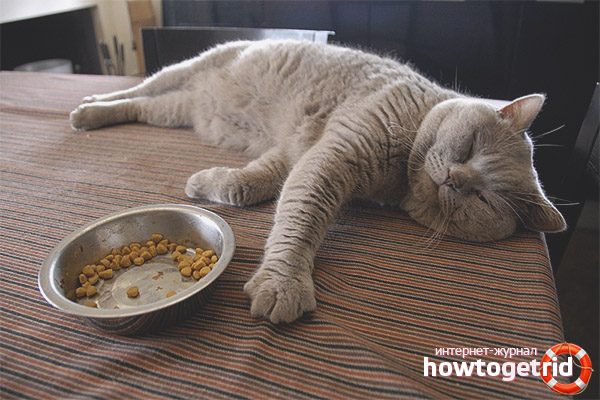
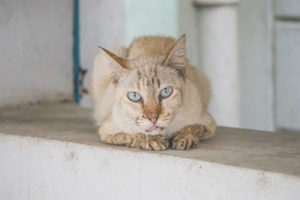
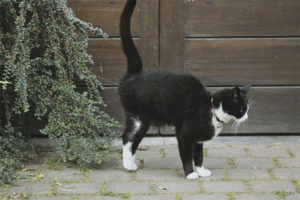
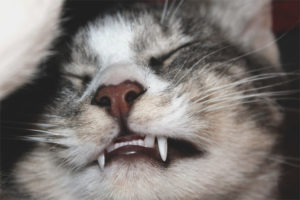
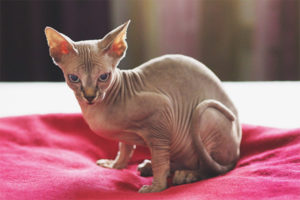
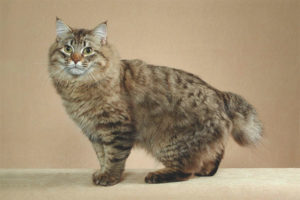
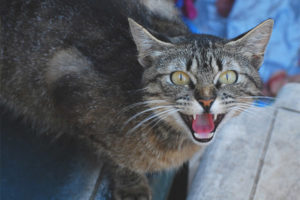
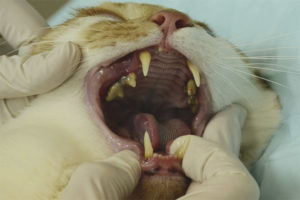
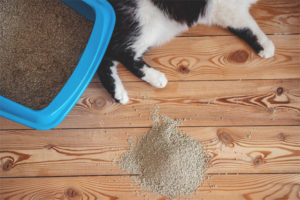
Submit